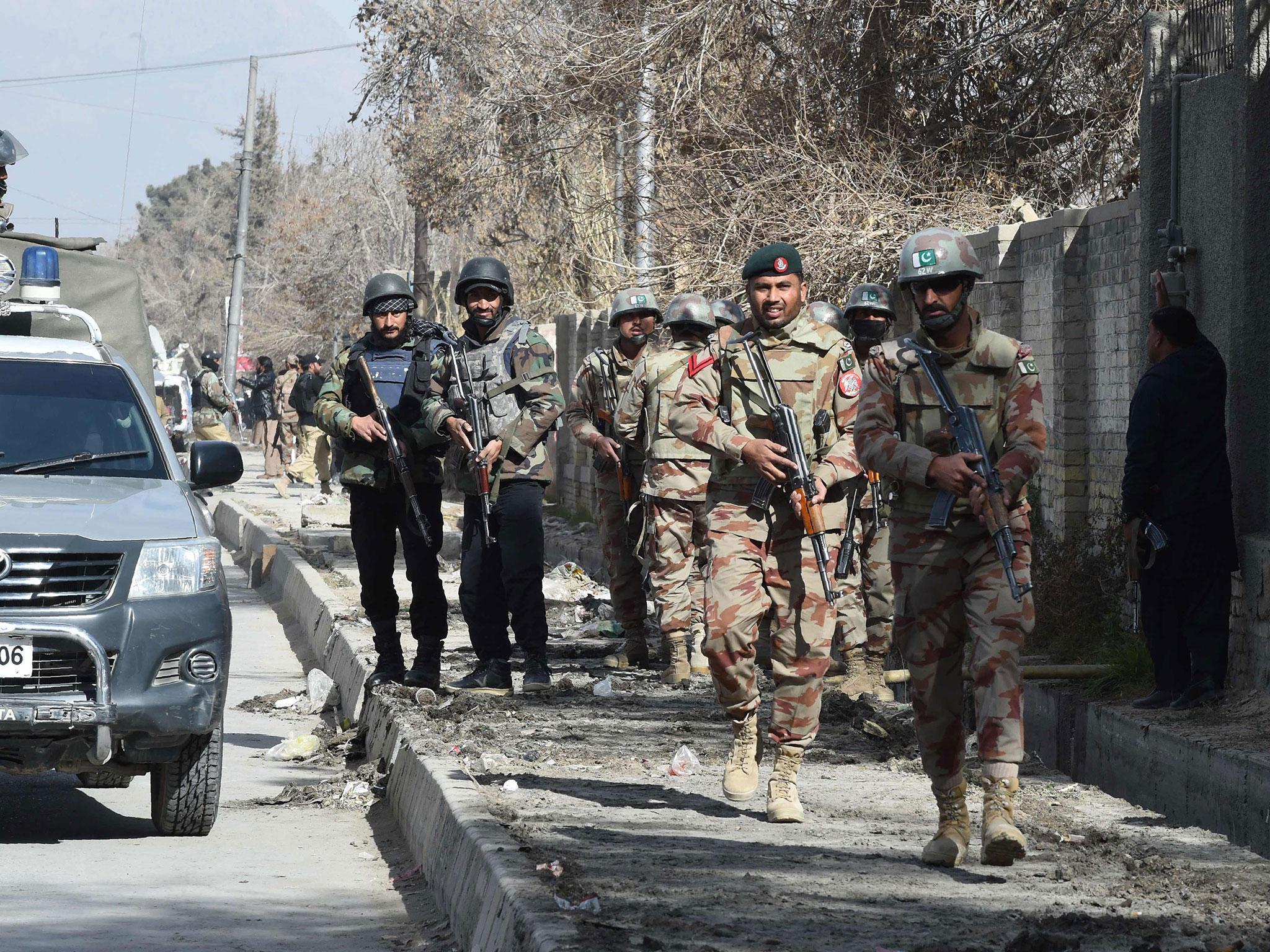Pakistan's Muslim clerics unite to issue fatwa against suicide bombings
South Asian nation particularly plagued by violence carried out by Islamist militants

Your support helps us to tell the story
From reproductive rights to climate change to Big Tech, The Independent is on the ground when the story is developing. Whether it's investigating the financials of Elon Musk's pro-Trump PAC or producing our latest documentary, 'The A Word', which shines a light on the American women fighting for reproductive rights, we know how important it is to parse out the facts from the messaging.
At such a critical moment in US history, we need reporters on the ground. Your donation allows us to keep sending journalists to speak to both sides of the story.
The Independent is trusted by Americans across the entire political spectrum. And unlike many other quality news outlets, we choose not to lock Americans out of our reporting and analysis with paywalls. We believe quality journalism should be available to everyone, paid for by those who can afford it.
Your support makes all the difference.More than 1,800 Pakistani Muslim clerics have issued an Islamic directive, or fatwa, forbidding suicide bombings, a book due to be unveiled by the government on Tuesday says.
The South Asian nation has for years been plagued by violence by Islamist militants who often use suicide bombers and preach that their struggle is a holy war to impose Islamic rule.
Suicide attacks are frequently condemned as fanatical and immoral, especially when civilians are killed, but insurgents view the tactic as their most effective weapon.
Seeking to curb “terrorism” that has resulted in tens of thousands of casualties since the early 2000s, the clerics declared suicide bombings to be forbidden, or “haraam”.
“This Fatwa provides a strong base for the stability of a moderate Islamic society,” Pakistan President Mamnoon Hussain wrote in the book.
“We can seek guidance from this Fatwa for building a national narrative in order to curb extremism in keeping with the golden principles of Islam.”
Foreign and domestic critics of Pakistan's government and military accuse them of cosying up to radical groups for political and military purposes and say the state has for too long turned a blind eye to hate preachers in mosques.
Pakistani officials deny frequent US allegations about collaborating with militant Islamist proxies in Afghanistan and India, and say vast gains have been made over the past decade against militant outfits such as the Pakistani Taliban.
But privately they also warn any moves against some popular hardline groups based in Pakistan would take a long time and need to be undertaken carefully.
Similar fatwas appear to have yielded scant results in the Middle East where the practice is used by Isis and other militant groups.
The Pakistani scholars, who declared that “no individual or group has the authority to declare and wage jihad (holy war)”, said suicide bombings violate key Islamic teachings and were as such forbidden.
The book was prepared by the state-run International Islamic University and Hussain was due at a ceremony to mark the book's release in Islamabad on Tuesday.
Reuters
Join our commenting forum
Join thought-provoking conversations, follow other Independent readers and see their replies
4Comments